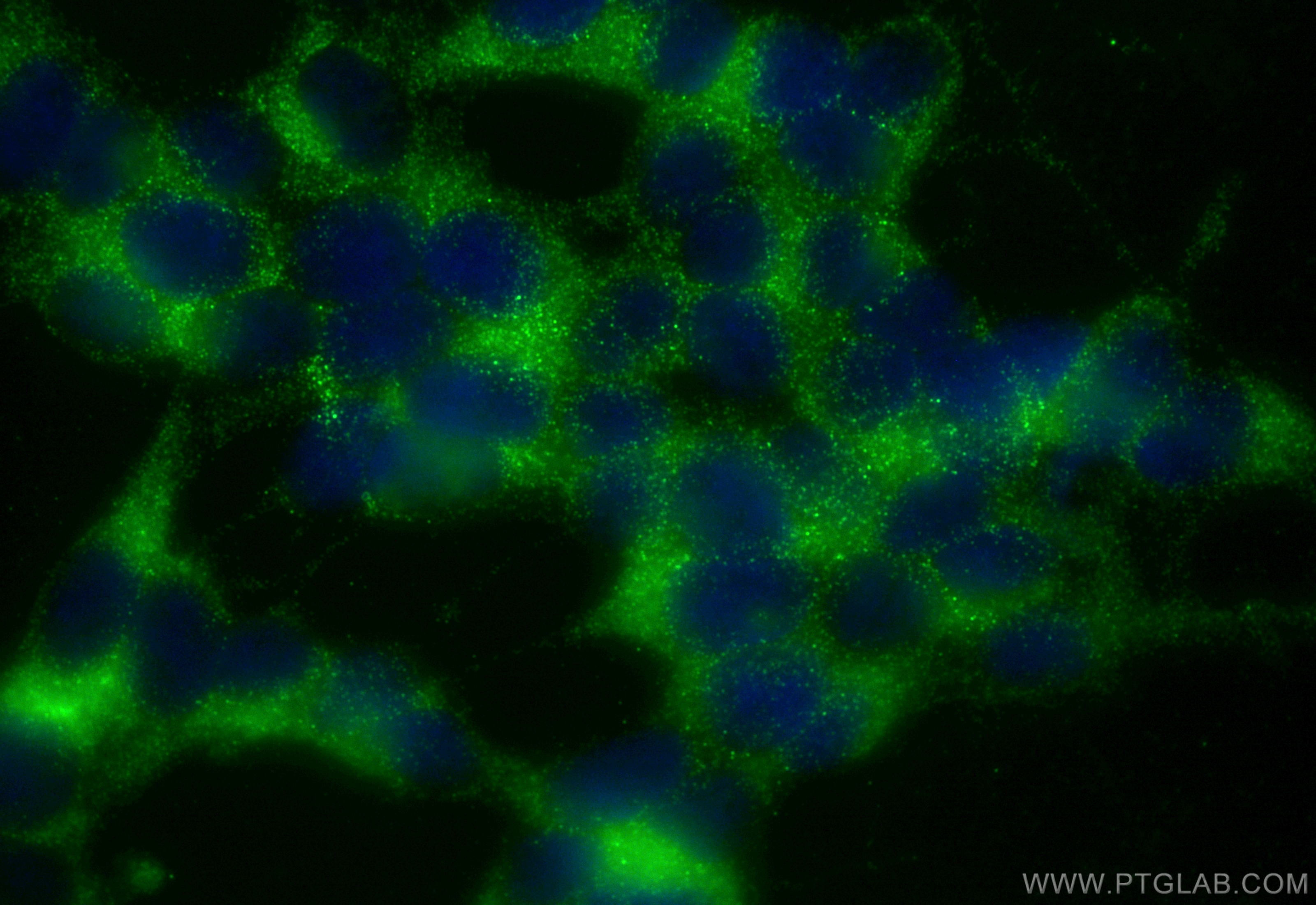验证数据展示
经过测试的应用
| Positive IF/ICC detected in | SH-SY5Y cells |
推荐稀释比
| 应用 | 推荐稀释比 |
|---|---|
| Immunofluorescence (IF)/ICC | IF/ICC : 1:50-1:500 |
| It is recommended that this reagent should be titrated in each testing system to obtain optimal results. | |
| Sample-dependent, Check data in validation data gallery. | |
产品信息
CL488-82992-2 targets LAMP5 in IF/ICC applications and shows reactivity with human samples.
| 经测试应用 | IF/ICC Application Description |
| 经测试反应性 | human |
| 免疫原 | LAMP5 fusion protein Ag33894 种属同源性预测 |
| 宿主/亚型 | Rabbit / IgG |
| 抗体类别 | Recombinant |
| 产品类型 | Antibody |
| 全称 | chromosome 20 open reading frame 103 |
| 别名 | |
| 观测分子量 | 31-35 kDa |
| GenBank蛋白编号 | BC050727 |
| 基因名称 | LAMP5 |
| Gene ID (NCBI) | 24141 |
| RRID | AB_3673165 |
| 偶联类型 | CoraLite® Plus 488 Fluorescent Dye |
| 最大激发/发射波长 | 493 nm / 522 nm |
| 形式 | Liquid |
| 纯化方式 | Protein A purification |
| UNIPROT ID | Q9UJQ1 |
| 储存缓冲液 | PBS with 50% glycerol, 0.05% Proclin300, 0.5% BSA , pH 7.3 |
| 储存条件 | Store at -20°C. Avoid exposure to light. Stable for one year after shipment. Aliquoting is unnecessary for -20oC storage. |
背景介绍
LAMP5 (Lysosome-associated membrane glycoprotein 5) is also named as BAD-LAMP and C20orf103. BAD-LAMP is a novel biomarker of nonactivated human plasmacytoid dendritic cells (PMID: 21642595). LAMP5 may be one of the key genes in the development of Multiple myeloma (MM) as well as its recurrence (PMID: 37033323). LAMP5 is a mammalian ortholog of the Caenorhabditis elegans protein, UNC-46, which functions as a sorting factor to localize the vesicular GABA transporter UNC-47 to synaptic vesicles (PMID: 30867010). It was localized exclusively in inhibitory synaptic terminals (PMID: 30867010).
实验方案
| Product Specific Protocols | |
|---|---|
| IF protocol for CL Plus 488 LAMP5 antibody CL488-82992-2 | Download protocol |
| Standard Protocols | |
|---|---|
| Click here to view our Standard Protocols |
